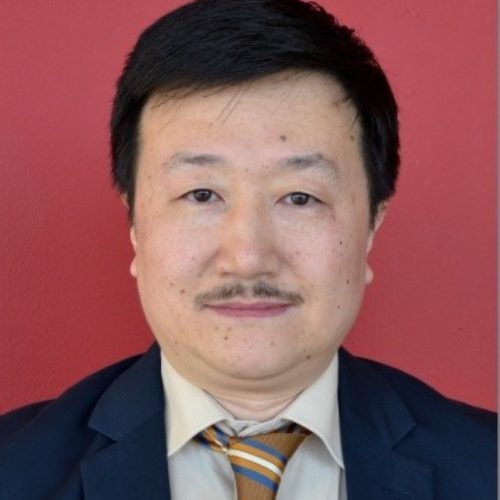Q: Asian Capitalisms
Network Q promotes theory and research on the diversity of socio-economic systems and capitalist development in Asia. New approaches to the study of Asia are needed to better understand how different systems and their socio-economic institutions such as labour markets, capital markets or product markets and outcomes (e.g. comparative advantages, innovation, cooperation) are related. The network promotes studies that examine these relationships as well as how processes of institutional change affect them. The network contributes to an interdisciplinary perspective on trajectories of development within Asia, and their consequences for socio-economic development.
We welcome a wide range of theoretical perspectives (e.g. political economy, economic sociology, management studies, industrial relations, innovation studies and innovation management, neo – institutionalism, and comparative institutional analysis). Topics of particular interest are: state and capitalism; systems of innovation; production networks and value chains; science, innovation, and technology policies; welfare states; innovation and specialization; entrepreneurship; knowledge-based economies; processes and politics of institutional change; varieties of capitalism, internationalization and regional integration; and creation, persistence and plasticity of technological trajectories.
Network Q is also linked to the “China in Europe Research Network” (EU COST Action 18215, Horizon 2020 Framework Programme). See: https://china-in-europe.net/about/
* * *
The following interview with Network Q organizers Boy Lüthje, Cornelia Storz, and Tobias ten Brink was conducted by Emma Greeson, a PhD candidate in Sociology at UC San Diego.
When was your Network founded?
We started with a mini-conference in 2011, and founded our Network in 2012.
Were you among the founders? Briefly, what was the genesis of the Network?
The Network promotes theory and research on the diversity of socio-economic systems and capitalist development in Asia. New approaches to the study of Asia are needed to understand better how different systems and their socio-economic institutions (e.g., labor markets, capital markets, product markets, etc.) and outcomes (e.g., comparative advantages, innovation, cooperation) are related to each other. The Network promotes studies that examine these relationships as well as how processes of institutional change affect them. Thus the Network contributes to an interdisciplinary perspective on trajectories of development within Asia, and their consequences for socio-economic development.
What academic disciplines are most represented in your Network?
Political science, sociology, and economics. A few papers have a background in area studies with a focus on social sciences.
How has the focus of the Network changed over time?
We enlarged our geographic focus. Originally, we mostly had papers on East Asia, but now we have also moved to South and South East Asia, and some presenters compare Asian economies to other economies in the Global South.
What are some of the most important issues or themes that have guided your Network in recent years? What do you think will be central in the next few years?
We welcome a wide range of theoretical perspectives (e.g., political economy, economic sociology, management studies, industrial relations, innovation studies and innovation management, neo-institutionalism, and comparative institutional analysis). Topics of particular interest are the state and capitalism; national, regional, local, and industrial systems of innovation; production networks and value chains, science, innovation, and technology policies; welfare states; emergence of inequalities; innovation and specialization; knowledge-based economies; processes and politics of institutional change; national business systems, varieties of capitalism, internationalization and regional integration; and creation, persistence and plasticity of technological trajectories. Given that we founded the Network only a few years ago, we aim to hold this focus constant for the next years.
What do you get from SASE and this Network in particular that you do not get at other conferences that you attend?
Definitely the interdisciplinary and broad perspective, and in particular the talks at the “interfaces” – be it between economics and sociology, between political science and innovation studies, or between sociology and management studies.
Is there anything about this Network and its dynamics, frameworks, orientations, or central issues that make it different from other Networks?
Yes. Our Network consists of a cross-sectional structure, covering other Networks’ topics, but reflecting them within the broader perspective of Asian capitalisms.
What would you want people to know about your Network?
We are one of the youngest Networks, but also one of the largest. We have a strong community spirit, which makes the Network highly enjoyable. Further, thanks to support of the Fondation France-Japon, we are able to offer travel grants and a prize for the best paper.
What are your most recent articles and books?
-
de Graaff, N. (2019): China Inc. Goes Global. The Transnational and National Networks of Chinese firms and business elites. Review of International Political Economy 27:2, 208-233, DOI: 10.1080/09692290.2019.1675741
-
de Graaff, T.; ten Brink, T.; Parmar, I. (2020): China’s rise in a liberal world order in transition – introduction to the FORUM. Review of International Political Economy 27:2, 191-207, DOI: 10.1080/09692290.2019.1709880
-
Lüthje, B. (2019): Platform Capitalism ‘Made in China’? Intelligent Manufacturing, Taobao Villages and the Restructuring of Work. Science, Technology & Society 24:2 (2019): 199-217, DOI: 10.1177/0971721819841985
-
Lüthje, B. (2021): Going digital, going green: changing production networks in the automotive industry in China. International Journal of Automotive Technology and Management, 21:1/2, 121-136
-
ten Brink, T. (2019): China’s Capitalism. A Paradoxical Route to Economic Prosperity. Philadelphia: University of Pennsylvania Press (Book Review Symposium, Socio-Economic Review, DOI: 10.1093/ser/mwaa013)
-
Zhao, W.; Ruet, J. (2021): Managing the “Post Miracle” Economy in China: Crisis of Growth Model and Policy Responses. Post-Communist Economies, Online First, DOI: 10.1080/14631377.2020.1867427



